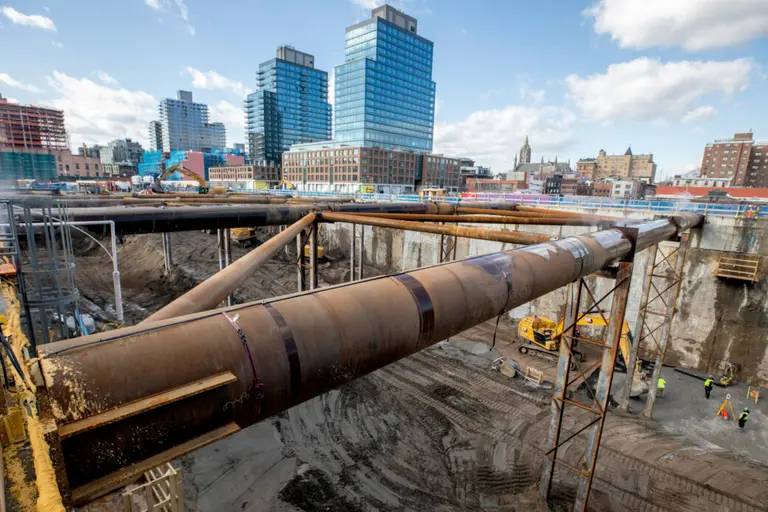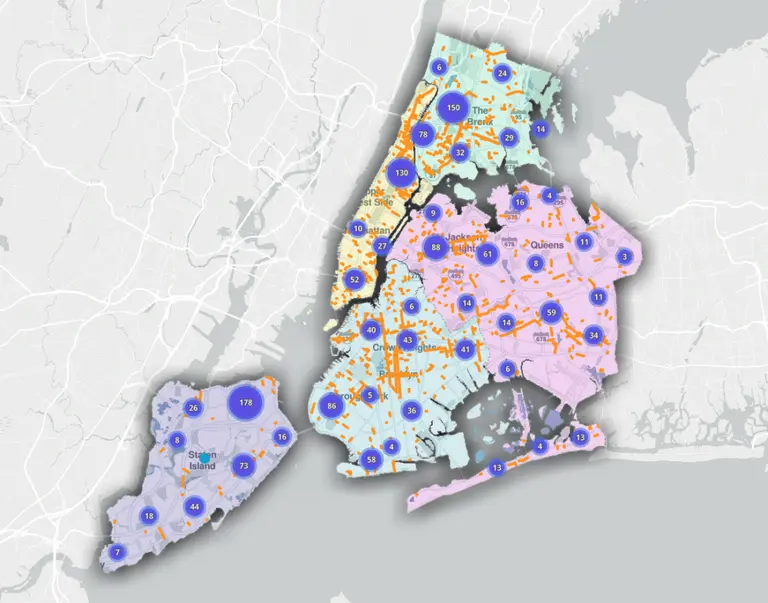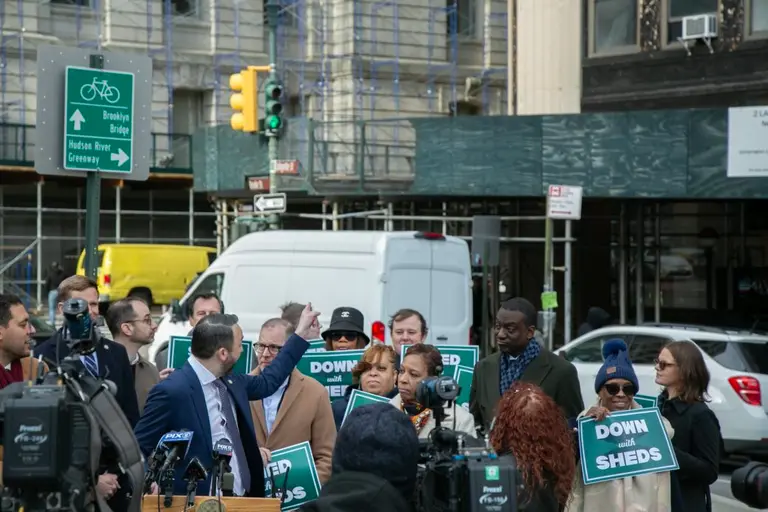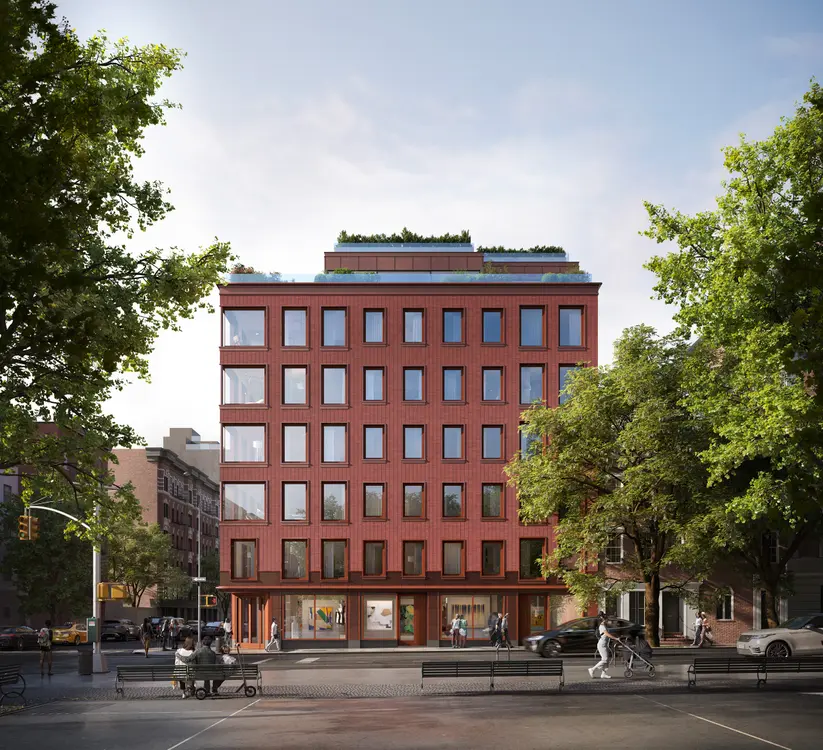State lawmakers approve new public trust that could fund repairs at 25,000 NYCHA apartments

photo via Wikimedia
New York state legislators last week passed legislation that would allow the New York City Housing Authority to raise billions of dollars for desperately needed repairs at 25,000 apartments in the system. Championed by Mayor Eric Adams and proposed by public housing authority chair Gregory Russ, the Public Housing Preservation Trust is seen as a rescue measure for funding needed for the NYCHA system–by far the nation’s largest public housing authority. The new public trust could raise billions of dollars to upgrade thousands of units, The City reports.
“This is a momentous event in the history of public housing — in New York City and across the nation,” Russ said. “The passage of the Public Housing Preservation Trust gives NYCHA the ability to raise billions of dollars in capital funds to invest in its properties and residents a true voice in the future of their homes.”
The roughly 400,000 residents living in NYCHA apartments have spent decades living in squalid conditions, from lead paint and mold to broken elevators–problems that stem from many years of underfunding, according to the New York Times. By NYCHA estimates, the persistent problems will require $40 billion to fix.
The new law would lease as many as 25,000 apartments to a public preservation trust; the newly-created trust could then borrow money to cover the upgrades and repairs. NYCHA residents would be front and center in the trust’s implementation, with all current rights and protections remaining intact–including the promise that no resident would have to pay more than 30 percent of their income toward rent.
More than a dozen changes recommended by resident leaders are also included in the legislation, including
- A first-in-the-country resident opt-in voting process, under which residents will have the right to vote on any proposed changes to their development;
- Resident participation in vendor selection; and
- Resident representation on quality assurance committees.
The trust would allow NYCHA access to twice as much federal funding as it currently receives while keeping its public status and moving to specific apartment-based Tenant Protection Voucher funding under the Section 8 program.
Additionally, the bill contains improved rules to reduce costs, speed up construction and respond to resident requests more quickly. NYCHA will still own all of the housing complexes and the land beneath them. and their employees will continue to manage the properties. The new trust would be helmed by a publicly-appointed board with nine members, four of whom are residents. Residents will also be able to aid in choosing the companies identified to do repair work.
Last year a similar bill was voted down in Albany based on the argument that it would take control of housing developments away from the public, and that it might be risky to issue significant amounts of debt to the agency. This time around, a provision giving residents in each development a vote on whether to accept the new structure mollified some previous skeptics, though a number of residents still oppose the bill for reasons that include the fear that the federal government won’t follow up with the financial support it requires.
The bill fills a highly publicized need since the omission of public housing in last year’s congressional infrastructure bill and the death of President Biden’s Build Back Better plan, which contained billions of dollars for NYCHA.
“For decades, NYCHA residents have been promised repair after repair that never materialized, but, with the Public Housing Preservation Trust, we will finally deliver on those promises and offer NYCHA residents the dignity and safe, high-quality, affordable homes they deserve,” Adams said in a statement.
The bill passed in the New York State Assembly in a 132-18 vote, and in the Senate in a 38-25 vote. As a final step, Hochul is expected to sign the new bill.
RELATED:
- Mayor’s budget comes up short on housing and homelessness, NYC advocates say
- New York City’s housing experts have a wish list for Mayor Adams
- City seeks ideas for two 100 percent affordable senior complexes on NYCHA land
- New NYCHA deal will turn 5,900 units to private developers and raise $1.5B for repairs


























